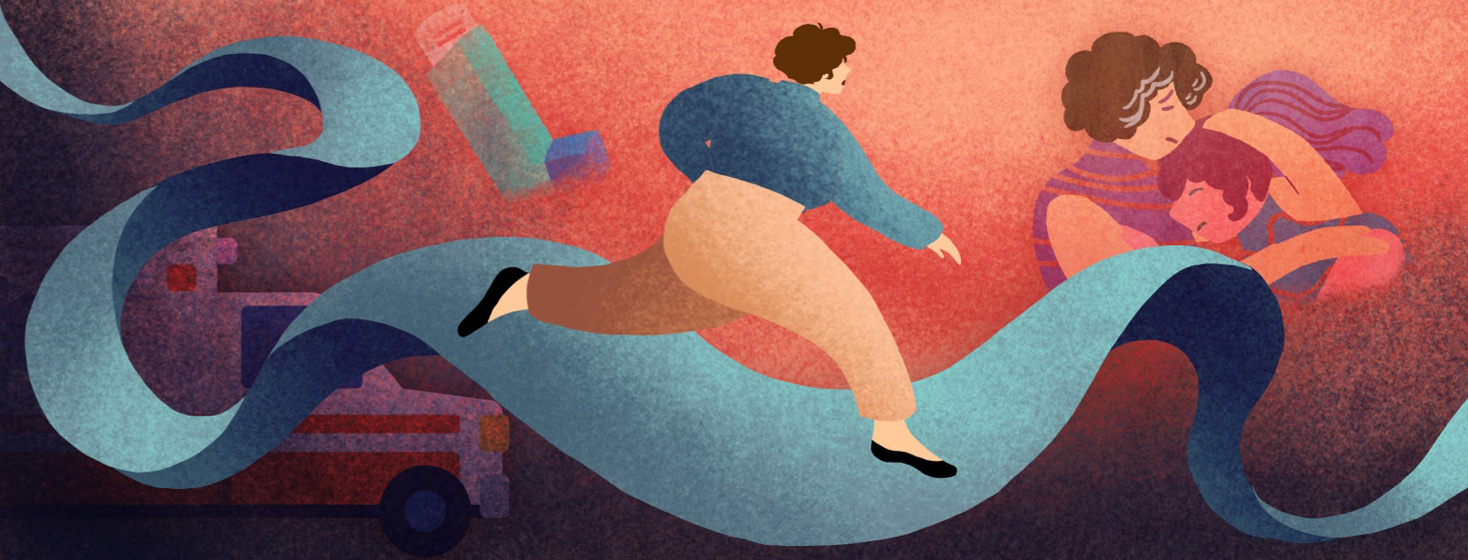25 Years Ago, We Started Our Asthma Journey
It’s been a long 25 years since my son was hospitalized and THEN diagnosed with asthma. As I learned more about asthma, which wasn’t easy back then, I realized I also had asthma. I thought it was normal to cough and have tight lungs. Who knew?
Then my young daughter was diagnosed... as was my oldest son. That made 4 of us with asthma in a family of 5. I’m not too thrilled with our genetics.
Asthma changed all our lives with missed school and works days, countless trips to the pediatrician and ER, and a total of 12 hospitalizations for asthma. It also led me to earn another college degree and start a career in public health as a nationally certified asthma educator.
What have we learned since that day?
Trust your instinct
If you are a parent or caregiver, you know what’s normal for your child or other family members. When I would take one of my kids (or myself) to the doctor, I would always say, “something is off. I can’t put my finger on it, but this isn’t normal for me or my child”.
My pediatrician dismissed my suspicion that my son had asthma, but I found out I was right when my son was admitted to the hospital and then diagnosed.
I vowed to never let a doctor dismiss my concerns again. You are the expert on your body and know what’s normal and what isn’t. If a doctor won’t listen to you, find one that will.
All asthma is not the same
During a national asthma conference, I heard a doctor say, “when you’ve seen one case of asthma... you’ve seen one case of asthma”.
There are different types of asthma – depending on your body.1 Years ago, asthma specialists thought everyone's asthma was the same, and they would all get the same inhalers.
Now, researchers know that each of us looks different on the outside, and our bodies are different on the inside... and that means we can have different types of asthma.2
Personalized treatment is now available
Asthma is a chronic disease of inflammation in the lungs, and there are different causes of inflammation. Your doctor can order a blood test to see what causes your inflammation and also what type of asthma you have.
Once they know that, they can focus on the right treatment for your body. In addition to inhalers, this includes asthma biologics (injectable medicine) that are used to treat people with severe asthma. Most can be given in a doctor’s office or at home, but one is given by IV and will need to be given in clinic.
25 years ago, there were no biologics available... until a few years after my son was diagnosed. But that biologic was only approved for those who were 12 years and older.3 So, we waited...
Once my son started on a monthly biologic injection, that was the end of his ER trips and hospitalizations. Before that, when my son would get sick, I would pack a hospital bag.
After starting on the biologic, when he would get sick, I would continue his daily inhaler and start breathing treatments – and they would work! In addition to his daily inhaler, the biologic was working to control the inflammation in his lungs so he wouldn’t end up in the hospital. It was life changing for us.
There are now 6 biologics that treat asthma and each one targets a different molecule in your body.4 Your doctor can help you figure out which one is right for your body.
25 years later...
Asthma can still be hard to control but now there are more inhalers and biologics on the market. There seems to be more asthma specialists now, and there are also support groups when you need to vent.
Asthma education
Asthma education is readily available now – but please make sure you use an accurate source. There are a few allergy and asthma nonprofits in the United States that provide free asthma webinars, conferences, and comic books and cartoons for little kids.
Asthma home visit programs
Many states have grant funded asthma home visit programs that pay for asthma educators to visit your home to teach you more about asthma. They can also check your inhaler technique and help you eliminate allergy and asthma triggers in your home.
There are also agencies that have money to help you make your house allergy and asthma friendly. There is so much more support now than when my son was diagnosed 25 years ago!
Have any of you found a good resource to help your asthma?

Join the conversation